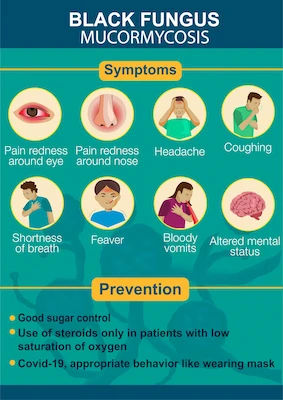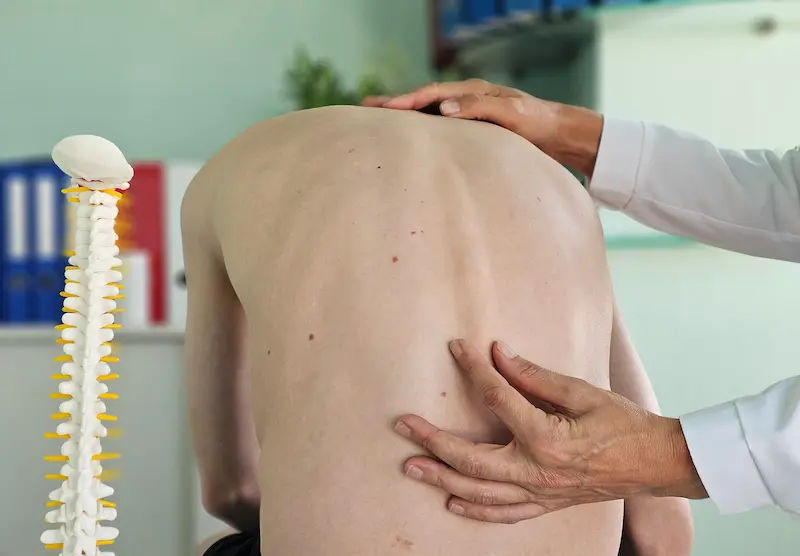Types of Nervous System Explained
Explore the intricate types of the nervous system, including the central (brain & spinal cord) and peripheral (somatic & autonomic) divisions. Understand how these vital components work together to control every bodily function and response.

Written by Dr. J T Hema Pratima
Reviewed by Dr. Dhankecha Mayank Dineshbhai MBBS
Last updated on 7th Aug, 2025

The nervous system is like the body’s control center—it helps us think, move, feel, and even breathe without us realizing it. It’s made up of different parts, each with unique roles. If you or a loved one is dealing with a nervous system-related issue, understanding how it works can help you take better care of your health.
In this article, we’ll break down the types of nervous systems in simple terms, explain how they function, and share tips to keep them healthy.
What Is the Nervous System?
The nervous system is a complex network of nerves and cells (neurons) that carry messages between the brain and the rest of the body. It controls everything from voluntary actions (like walking) to involuntary ones (like heartbeat).
It is divided into two main parts:
1. Central Nervous System (CNS)
2. Peripheral Nervous System (PNS)
Each of these has further subdivisions, which we’ll explore below.
1. Central Nervous System (CNS)
The CNS is the command center of the body and includes:
A. Brain
Controls thoughts, memory, emotions, and movements.
Processes sensory information (like sight, sound, and touch).
Divided into different parts (cerebrum, cerebellum, brainstem).
B. Spinal Cord
Acts as a bridge between the brain and the rest of the body.
Sends signals for movement and reflexes (like pulling your hand away from something hot).
Common Conditions Affecting the CNS:
Stroke (brain damage due to blood flow issues)
Multiple Sclerosis (MS) (immune system attacks nerve coverings)
Epilepsy (abnormal electrical activity in the brain)
2. Peripheral Nervous System (PNS)
The PNS connects the CNS to limbs and organs, allowing communication. It has two main parts:
A. Somatic Nervous System (Voluntary Control)
Controls muscles so you can move consciously (like walking or waving).
Helps you feel sensations (touch, pain, temperature).
B. Autonomic Nervous System (Involuntary Control)
This system works automatically and has two branches:
i. Sympathetic Nervous System (Fight or Flight)
Activates during stress or danger.
Increases heart rate, dilates pupils, and prepares the body for action.
ii. Parasympathetic Nervous System (Rest and Digest)
Calms the body after stress.
Slows heart rate, aids digestion, and promotes relaxation.
Common Conditions Affecting the PNS:
Peripheral Neuropathy (nerve damage causing numbness/pain)
Autonomic Dysfunction (affects blood pressure, digestion)
GuillainBarré Syndrome (immune system attacks nerves)
Consult Top Neurologist
How Does the Nervous System Affect Your Health?
A well functioning nervous system is crucial for:
Movement & Coordination – Helps you walk, talk, and perform daily tasks.
Sensory Perception – Lets you feel pain, heat, cold, and touch.
Cognitive Functions – Supports memory, learning, and decisionmaking.
Automatic Body Functions – Regulates breathing, digestion, and heartbeat.
When something goes wrong, symptoms may include:
Numbness or tingling
Muscle weakness
Dizziness or fainting
Memory problems
Chronic pain
Tips to Keep Your Nervous System Healthy
Tips to keep your nervous system healthy are:
1. Eat a BrainBoosting Diet
Omega-3 fatty acids (fish, walnuts) support nerve function.
Antioxidants (berries, dark chocolate) protect brain cells.
B Vitamins (leafy greens, eggs) help nerve health.
2. Stay Physically Active
Exercise improves blood flow to the brain and strengthens nerves.
Yoga and stretching help reduce stress.
3. Get Enough Sleep
Sleep helps the brain repair and form memories.
Aim for 7-9 hours per night.
4. Manage Stress
Chronic stress harms the nervous system.
Try meditation, deep breathing, or hobbies to relax.
5. Avoid Harmful Habits
Smoking & excessive alcohol damage nerves over time.
Protect your head from injuries (wear helmets when needed).
When to See a Doctor?
Consult a neurologist if you experience:
Severe headaches or migraines
Sudden numbness or paralysis
Memory loss or confusion
Unexplained tremors or seizures
Early diagnosis can prevent complications. If you need expert advice, you can book a consultation with a neurologist on Apollo 24|7 for personalized care.
Final Thoughts
Your nervous system is vital for every function in your body—from thinking to breathing. By understanding its different parts and taking care of it through a healthy lifestyle, you can protect your brain and nerves for years to come.
If you have concerns about nerve related symptoms, don’t hesitate to seek medical help. Apollo 24|7 offers expert consultations and diagnostic tests to ensure you get the right care when needed.
Consult Top Neurologist
Consult Top Neurologist

Dr. Aditendraditya Singh Bhati
Neurosurgeon
18 Years • MBBS(2004), DNB Neurosurgery(2014); MNAMS; Fellow Neuroendoscopy
Delhi
Apollo Hospitals Indraprastha, Delhi
(100+ Patients)

Dr. Ganeshgouda Majigoudra
Neurologist
10 Years • MBBS, MD ( GENERAL MEDICINE) DM (NEUROLOGY)
Bengaluru
Apollo Clinic, JP nagar, Bengaluru

Dr Rajashekar Mummadi
Neurologist
3 Years • MBBS, DNB General Medicine, DRNB Neurology
Hyderabad
Dr Ram's Neuro Clinic, Hyderabad

Dr. E Prabhakar Sastry
General Physician/ Internal Medicine Specialist
40 Years • MD(Internal Medicine)
Manikonda Jagir
Apollo Clinic, Manikonda, Manikonda Jagir
(125+ Patients)

Dr S Selvin
Neurologist
10 Years • MBBS, MD, DM (Neurology), FINR fellowhsip in Interventional Neuro Radiology
Chennai
Apollo Speciality Hospitals Vanagaram, Chennai




